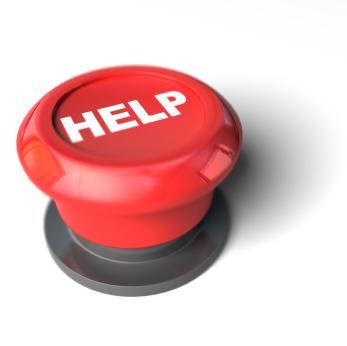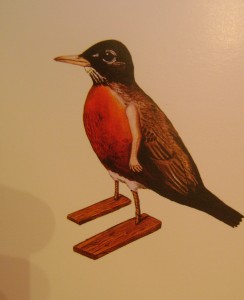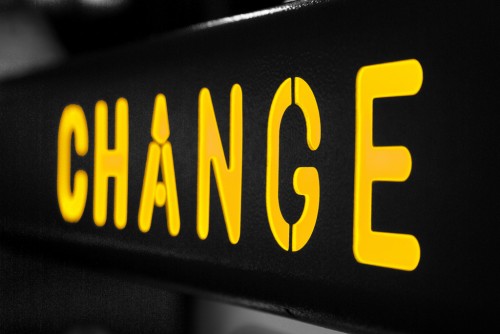MY BEAUTIFUL “CORRESPONDENCE” WITH PUBLICATIONS I HAVE BEEN PUBLISHED IN (AND/OR IGNORED BY!)
There was a year during which I essentially told my brain that the way to become a writer was to get published by McSweeney’s Internet Tendency. During that year I wrote a loooooootttt of things that are totally unusable for any other place and which were trying to get the right tone for that site. In retrospect, I fully blame the editor for always sending me back kind and personalized rejections which encouraged me—or at least I thought they did—to try again. Eventually, I stopped writing Open Letters, Monologues and Lists, but I think I owe my decision to try writing more to that editor and his charming rejections.
Emily +/- Dickinson
Last night for school I was asked to give a brief presentation on the importance of Emily Dickinson’s dashes. (I posted about this a few days ago.) My one sentence conclusion: “They’re nearly as important as the words are.” yeah ok whatever…
I did some further reading, though, and noticed/learned something I think is interesting: even among the “accepted,” contemporary, “dash-inclusive” collections of her work, the dashes still aren’t fully represented the way she wrote them in her manuscripts… and I’m not just talking about the hypen vs. en dash vs. em dash thing, but even their placement and existence.
Let’s get into some shit…
Q & A #4

If you have questions about writing or publishing or whatever, leave them in the comments or e-mail them to roxane at roxanegay dot com and we will find you some answers.
If you withdraw a story, is it appropriate to immediately send another story to that lit. journal? What if you have multiple withdrawals from that publication? (And I’m talking the kind of place where you have to email them to withdraw your piece, not just pull it out yourself and they never even knew it was there.) Are they going to get pissed at some point? When does your good/bad luck become a reason to basically stop submitting to a journal?
Sean Lovelace
Yes, they get pissed eventually. Numerous withdraws? I am already souring your name. What are you doing? If you are continually getting accepted by multiple journals, bless you. But why not stop the simultaneous submissions? You obviously know how to write a great story lit mags want. Cut the shotgun approach at this point.
Lily Hoang
I don’t submit enough to journals to withdraw, but I have withdrawn book ms from presses. I do ask if they’ll consider another ms in the future, unless I have a spare lying around (which I never do). Usually, they’re nice, but with one press in particular, I’ve pulled two or three ms from them (one just a week or two after I submitted it). That’s just embarrassing. With journals though, I don’t think it’s a big deal.
Ryan Call
I don’t think it’s bad to immediately send another story to take the place of a withdrawal. It doesn’t bother me when I read submissions for NOÖ. I just mark the previous story ‘withdrawn’ and the new story goes at the end of the queue. As a writer, I tend not to send an immediate replacement. I don’t often have a story to replace another story, so it takes me a long time to figure out what to send to that editor if I had to withdraw another story that I thought was perfect for him or her.
Roxane Gay
Multiple withdrawals gets annoying. To go on a tiny tangent, I get irritated when people withdraw stories the same day or the same week. I realize that cannot be helped at times, but it is aggravating. When you find yourself in the position where you’re always withdrawing stories, it’s time to stop simultaneously submitting or at least submitting to no more than two or three markets for each story. To really answer your question, I don’t mind a writer immediately sending another submission immediately after they withdraw a piece but if it happened four or five times in a very short time span, I would start to get testy about it.
February 18th, 2010 / 2:36 am
Today an editor casually told me writers are like small children. Ouch. Are we? Is that good or bad? It had me thinking…
Every Book and Magazine with Typos/Errors?
 I am reading Face by Alexie and on page 35 there is a sentence that needs indenting. This a game, finding these tiny errors, locating them in magazines, canonical works, some huge publisher.
I am reading Face by Alexie and on page 35 there is a sentence that needs indenting. This a game, finding these tiny errors, locating them in magazines, canonical works, some huge publisher.
One part of me—the part editing The Broken Plate and about to teach about copy-editing—is paranoid. Many magazines feel less (or no) errors are related to the quality of the publication.
Some feel like a typo in a book is a human gesture, a beautiful mole, unsymmetrical ears, the smudge in the painting, the flaw that makes the thing.
How much is on the editor, the writer?
How closely do you look at your galleys (if you get them)?
Do you have a technique to catch errors? The writer, too near, as the worst diagnostic?
War story? One time a magazine had my word “years” changed to “ears.” That smarted a bit. Years, ears…
You?
(image by Mr. Eggers)
Guest Post: Dave Clapper on New Editorial Directions at SLQ

Blake had a post a while back about the problems that slush presents for every lit mag. When magazines start out, their slushes are pretty small, the editors are really excited about reading, and for the most part, they go into reading each piece with the hope of finding a piece to publish. As lit mags get older, their slushes get larger, the editors get a bit more burnt out, and because the amount of space the mags have is the same, they can’t accept as high a percentage of subs, and tend to start reading each sub with an eye toward finding a reason to reject. It’s kind of horrible and numbing. How do mags avoid this?
December 31st, 2009 / 10:00 am
We Are All Friends Here

I’ve been thinking about nepotism and croneyism and friends publishing friends because I often hear people talking, complaining, and bitching about the insular nature of (independent) publishing.
Intrapublishing (new word!) happens but not as much as you’d think. Some magazines are largely vanity presses but most are not.
We all know each other, right? We read each other and we publish each other and support each other and love each other and hate each other. It’s a small small community. The longer you stick around, the more inevitable it becomes that you will encounter people you know and/or like (or dislike as the case may be) in your submission queue. Does that influence editorial decisions? Sometimes. If I know you, for example, and you send me a 7,500 word story I will read it but that isn’t a guarantee of publication. Most editors are great people with integrity who can look beyond friendship and/or mutual respect. I get rejected from acquaintances and friends all the time.
Brave souls submit
 Severely rigid writer’s guidelines seem only to serve editorial anal-retentive impulses, which I sadly sometimes feel may be driving certain journals to begin with.
Severely rigid writer’s guidelines seem only to serve editorial anal-retentive impulses, which I sadly sometimes feel may be driving certain journals to begin with.
I often go to a submissions page and have to tread through 8 or so dense paragraphs of (ironically, often inefficiently written) prose about typing my last name after the word ‘submission’ followed immediately with two forward slashes and then the word count. Are they suggesting that failure to be so explicit will preclude their ability to just read the story? And what is it about including mailing address for online journals? Unless there’s some distant prospect of a printed anthology (at which point many addresses will have changed), the entire medium is exclusively virtual. Do these editors want to see if you live in a culturally viable city like New York? If so, just say so. The street number doesn’t help.
Cover letters are absurd. Writers are not ‘allowed’ to describe their story, thus left in the awkward position of either fawning over the journal, or trying to sell themselves with a list of past publications. This crap is completely useless. Just read the fucking story.
I understand that writers can be disorganized, and these editors are describing an ideal process of what can be a logistical headache, but please, try to be more intuitive and agile here. In the magic of email, the sender’s name is cited along with the email. Is it not possible to simply associate a story as originating from a particular email, one which includes the writer’s name? It just seems that if an editor is serious about publishing a story, he or she will somehow ‘figure it out,’ and if they don’t want to publish a piece, then it’s irrelevant anyways.
Perhaps more irritating is when editors ‘go off’ (usually for three paragraphs) on—not merely what they are looking for in a story, but—the moral ethics of what makes good writing in the most absolute and abstract sense. They say things like, “describe it, don’t say it.” I’ll fucking say it if I want to. I’m the writer here, you’re the editor. It’s my job to write, and your job to reject or accept it. It’s not your job to preach to a voiceless public about how to write.
For every editor, there are about 200 writers. By statistical default, editors have ‘the power.’ They should be nice, and publish what they like, and reject what they don’t. If their egos are still hungry, write them a story about a sandwich. Wait, Bukowski did that already…
October 13th, 2008 / 2:10 pm
